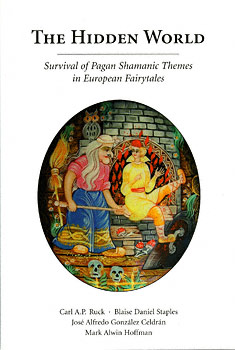
[an error occurred while processing this directive]
Encoded in tales seemingly as simple as Snow White with her poisoned red and white apple are themes traceable back to the great epic of Homer, about a hibernating bear hero called Odysseus, and the Mesopotamian Gilgamesh, as well as the cherished lineage of the leading families of Europe who derived their original empowerment from the pre-Christian fairy deities.
BACK COVER #
It was mainly just the European urban centers that converted Christianity, and often more for political or commercial interests, rather than as a matter of faith. The old religions persisted in the villages or pagani, pejoratively named after them as Paganism. The Christians built their sanctuaries upon the pagan sites, expropriating their numinous past, commonly incorporating the actual architectural remnants and assimilating the symbolism of the former deities. The wisdom of those deposed gods and their rites persisted in less objectionable forms, disguised to delude the censors, as country festivals and quaint tales, often about the fairy folk who coexisted with this world and could be accessed by magical procedures that perpetuated ancient visionary sacraments of ecstatic shamanism.Encoded in tales seemingly as simple as Snow White with her poisoned red and white apple are themes traceable back to the great epic of Homer, about a hibernating bear hero called Odysseus, and the Mesopotamian Gilgamesh, as well as the cherished lineage of the leading families of Europe who derived their original empowerment from the pre-Christian fairy deities.


